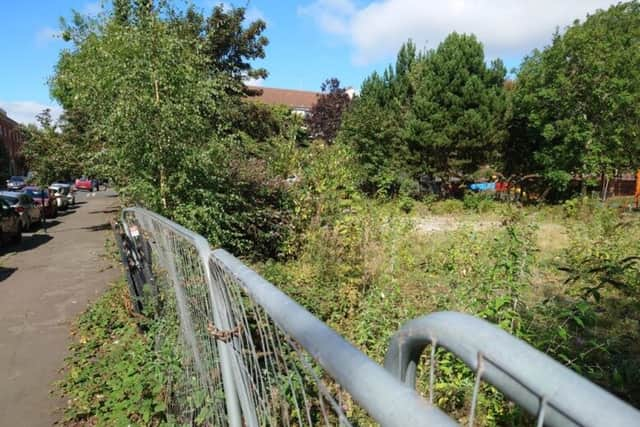Flooding danger on old Glasgow mining site makes apartment plans ‘high risk’
and live on Freeview channel 276
HJV Consultants Ltd want to erect the homes on a plot at 10 Kelbourne Street that was once the annexe of the demolished North Kelvinside Parish Church.
The church came down in 1987 due to subsidence caused by undermining while the annexe was demolished in 2014.
Advertisement
Hide AdAdvertisement
Hide AdThere have been 57 objections to the bid including one from SNP councillor Franny Scally. The Coal Authority has also objected.
A council report said: “The site is within an area of high developmental risk from historic coal mining and is at potential risk of pluvial flooding.”


Among concerns expressed by objectors were increased parking and traffic pressure, overshadowing of a nearby playpark and lack of communal amenity space.
The proposal was previously turned down by Glasgow City Council and councillors were due to make a decision on the appeal yesterday at the planning local review committee.
Advertisement
Hide AdAdvertisement
Hide AdThat has been delayed because they need a number of documents from the applicant.
The planning local review committee heard among missing documents was a coal mining risk assessment, flood risk assessment, tree survey and landscaping plan.
SNP councillor Ken Andrew said there are “clearly problems” at the site and the lack of a mine working survey is fundamental considering how the church was taken down.
The council knocked back the planning application for nine reasons and judged that the “density, scale and massing of the residential development will result in over-development of the site.”
Advertisement
Hide AdAdvertisement
Hide AdThe council said it was contrary to a number of strategies in the city development plan.
A statement of appeal said: “We believe there are valid grounds for appealing the decision as the reasons given for refusal by Glasgow City Council were either addressed appropriately by the submitted plans or were technical in nature where compliance would have been relatively easily demonstrated had Glasgow City Council asked for these details.
“We believe that Glasgow City Council’s reasons for refusal show a lack of understanding of the submitted plans perhaps resulting from the non-engagement of Glasgow City Council with the applicant’s design team after the application was submitted up until the refusal notice was issued on the planning portal.”
The statement claimed a coal mining risk assessment had been prepared and was ready to be submitted at request from the council.
Objecting to the proposal the Coal Authority pointed out the site falls within the development high risk area.
Comment Guidelines
National World encourages reader discussion on our stories. User feedback, insights and back-and-forth exchanges add a rich layer of context to reporting. Please review our Community Guidelines before commenting.